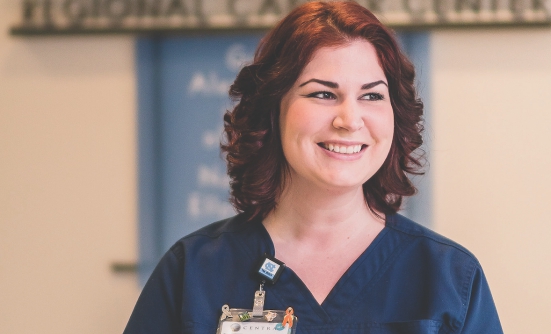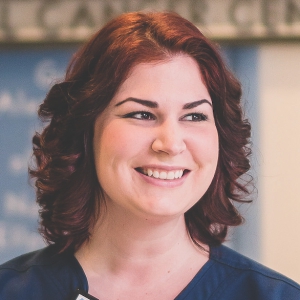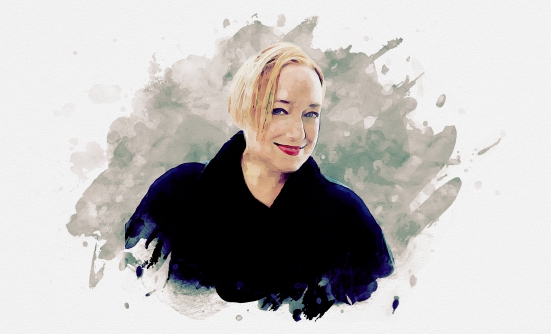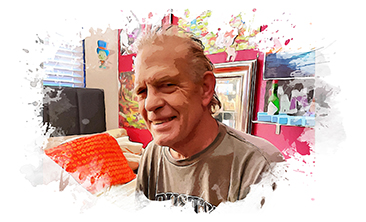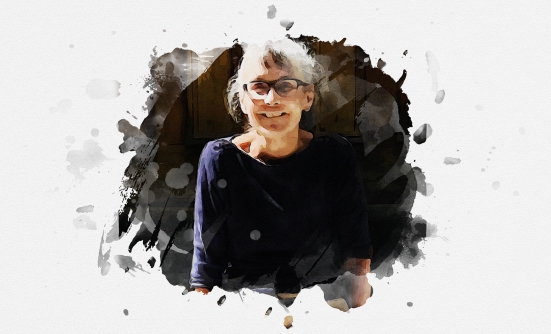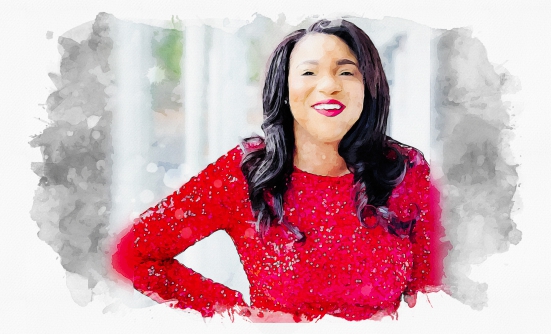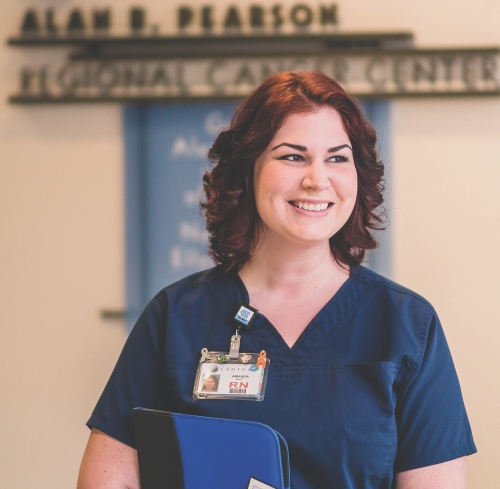
The year 2015 was supposed to be a monumental time for me; after all, I was turning 30. I had a fantastic job at the Centra Alan B. Pearson Regional Cancer Center as an oncology nurse navigator taking care of patients with lung cancer. I was newly single, and ready for what the world had in store. But there was this nagging abdominal pain.
No Rhyme or Reason
In December 2014, I started going to my primary care physician for an intermittent right-side abdominal pain. The pain had no rhyme or reason to it, and I had tried everything I could think of to figure out what caused it, influenced it, or made it go away and to no avail.
Over the next few months, I saw multiple doctors and had numerous tests and scans done. I was sent to the gastrointestinal office, which resulted in a colonoscopy. This test showed no cause for my pain.
I was then sent to my gynecologist, where a lovely ultrasound technician truly listened to what I had to say. I had been saying that the pain felt to be in my kidney area, but no one seemed to think it was related to the kidney. I had a vaginal ultrasound, and the technician said, “Well, let’s just take a quick look at your kidney while you are here.”
In this office, women are typically looking at the ultrasound monitor to see the miracle of life inside them. As we looked at the big “babytron” monitor, clear as can be, we could both see a solid-appearing mass that was obviously not supposed to be there.
The technician’s professionalism immediately kicked in, and she did what every healthcare professional does, and said, “I’m not really sure what that was; we’ll let the doctor take a look at it.”
“There Is No Way You Have Cancer”
My gynecologist admitted that reading kidney ultrasounds was not her specialty, and sent me for a CT scan the next day. She was also the first person to say, “You’re 29 years old, there is no way you have cancer.”
My CT scan led to a quick referral to the urologist. In the meantime, until my urology visit, my boss tried to curb my negative mindset with additional “you’re 29 years old, there is no way you have cancer” comments, and even suggesting articles about benign kidney masses.
My best friend, Lauren, went with me to my urology appointment. She, too, was sticking by the “you’re 29 years old, there is no way you have cancer” mentality. She held my hand as the doctor came in. Within the first 25 words out of his mouth, he introduced himself and said these words: “I’m 90% sure that this is cancer.”
Coping Through Laughter
Lauren began to cry, and I began to laugh hysterically. Nurses have a rather dark sense of humor and twisted coping skills at times.
Looking back on this scenario, my urologist probably thought I was clinically insane. Once my laughter subsided, I told him that I was about to turn 30, I had bucket list concert tickets, and I was to be in Lauren’s upcoming wedding, so this thing needed to come out of me as soon as possible.
My urologist also said that this tumor was not causing my pain, and that I never would have known it was there until it had spread elsewhere to cause problems.
Talk about a humbling thought. My hypochondriac tendencies and self-advocacy certainly paid off.
Rallying Around Me
Fast-forward a week, and I had a very uneventful trip to the operating room, followed by a few days in the hospital after my open right-side partial nephrectomy (removal of part of the kidney). My friends and family rallied around me to provide 24-hour care for the first 4 (uneventful) days at home after the surgery.
Those days were filled with pain medications, nausea medications, naps, and lots of oyster crackers. On Friday, Lauren was “on duty,” and when she arrived, I was in excruciating pain that I had not been able to control with the usual pain medication regimen.
Much to my protest, Lauren convinced me to return to the emergency department, where I was admitted to the oncology floor. For the first time in this entire process I thought to myself—“I actually had cancer!”
All those people who said to me, “You’re 29 years old, there is no way you have cancer” were wrong. The transport guy was rolling me to my room, when I passed one of my patients with lung cancer walking in the hall on the oncology floor—and that’s when it truly set in.
My “Empathy Meter”
My first thought was that if I work at the cancer center and get cancer myself, I should absolutely get a raise. Suddenly, I had a different, deeper sense of kinship with my patients. My “empathy meter” went through the roof. I was now one of “them.”
I understood what it was like to sit in the chair and have a physician tell you that you have cancer. I understood the scariness of determining a treatment plan. I understood the unplanned complications associated with treatments. Suddenly, my entire mindset changed.
This hospitalization resulted in the discovery of a congenital narrowing at my ureteropelvic junction, along with another trip to the operating room, for a stent. As it turned out, this is what had been causing my intermittent phantom right-flank pain the entire time. This is also an ailment that would not have been seen on any imaging tests, unless the area was stenosed at that very moment, which explains all the negative results of my different tests.
Cancer Free
In the end of this journey, the surgery rendered me cancer free, and no other treatments were necessary. I turned 30 with a sense of purpose, knowing that I was walking this earth for a reason, and my cancer was an incidental finding.
I went to an amazing bucket list concert, and I stood proudly by my best friend as she got married.
Oncology Nurse Navigator
As an oncology nurse navigator, I am guiding patients through their entire cancer journey, helping them understand their diagnosis and treatment plans, and ensure that they have access to available resources for their cancer diagnosis.
Now, my role as an oncology nurse navigator has forever been changed after being on the receiving end of a cancer diagnosis.





